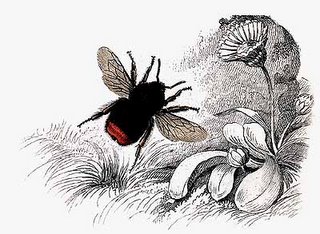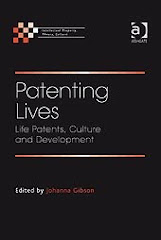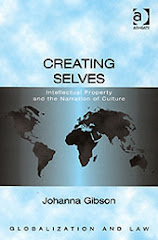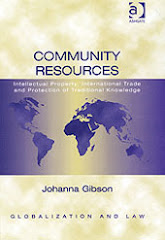
 A recent letter to Nature by Donat Agosti, American Museum of Natural History, raises some interesting points about the possible interactions between copyright protection and biopiracy. Work in the Patenting Lives Project has been considering some related concerns - particularly in the area of scientific publication and access to the knowledge and information arising from research in biotechnologies. Agosti's letter refers to an earlier commentary piece in Nature, on ZooBank, an open access universal register for animal names, proposed by Andrew Polaszek (Executive Secretary of the International Commission on Zoological Nomenclature, based at the Natural History Museum, London) and others. Agosti's concern is that the mandatory exchange of information under the Convention on Biological Diversity (to which the United States is not a party) is threatened by copyright restrictions on the media used to disseminate taxonomic information and research, and argues that such restrictions place costs on that information beyond the means of many developing (and biodiverse) countries. In this way, copyright is tantamout to biopiracy by removing (limiting) the access to biological information. The related interest in copyright has been similarly relevant to the Patenting Lives Project, so these comments are of particular interest. The ZooBank register proposes an open access solution to this. But the obstacles to the register, potentially posed by copyright, suggest a possibly intriguing contradiction between copyright and the accountability and responsibility of scientific research to its public.
A recent letter to Nature by Donat Agosti, American Museum of Natural History, raises some interesting points about the possible interactions between copyright protection and biopiracy. Work in the Patenting Lives Project has been considering some related concerns - particularly in the area of scientific publication and access to the knowledge and information arising from research in biotechnologies. Agosti's letter refers to an earlier commentary piece in Nature, on ZooBank, an open access universal register for animal names, proposed by Andrew Polaszek (Executive Secretary of the International Commission on Zoological Nomenclature, based at the Natural History Museum, London) and others. Agosti's concern is that the mandatory exchange of information under the Convention on Biological Diversity (to which the United States is not a party) is threatened by copyright restrictions on the media used to disseminate taxonomic information and research, and argues that such restrictions place costs on that information beyond the means of many developing (and biodiverse) countries. In this way, copyright is tantamout to biopiracy by removing (limiting) the access to biological information. The related interest in copyright has been similarly relevant to the Patenting Lives Project, so these comments are of particular interest. The ZooBank register proposes an open access solution to this. But the obstacles to the register, potentially posed by copyright, suggest a possibly intriguing contradiction between copyright and the accountability and responsibility of scientific research to its public.



3 comments:
The US is actually a signatory to the CBD, they just haven't ratified the agreement. This perhaps reinforces Agosti's argument, however, as at international law, signatories to treaties are not supposed to act in a way that undermines the purpose of the treaty. Does publishing copyrighted taxonomic descriptions undermine access to genetic resources - the third objective of the Convention?
Also, I would say that the Agosti's biopiracy argument may be more specific than simply placing any taxonomic information beyond the reach of many developing countries because of copyright and cost restrictions. Accusations of biopiracy are usually based on further accusations of theft of some biological or genetic resource. My understanding of his letter was that the taxonomic information being copyrighted described organisms that originated in developing countries. So studying organisms from developing countries and publishing their taxonomic descriptions in largely Northern-based, copyrighted journals that scientists in the countries of origin of these organisms don't have access to is the root of the biopiracy.
In this way, Agosti's copyright & biopiracy argument parallels the patenting & biopiracy argument whereby 'raw' organisms are removed from developing countries, supposedly improved in some manner in the North and then patented without any returns or acknowledgement to the country of origin.
I'm very interested in seeing others' thoughts on this apparently new application of the biopiracy concept.
Thanks Kathryn for pointing out the haste in the original post, where I wrote signatory instead of party (which I've now corrected). My question regarding your comment is whether the US is bound, as a signatory, in the way you describe. First, given the fact that the US is not a party to the Vienna Convention it's not clear whether the US would be bound by the relevant provision (Article 18 "Obligation not to defeat the object and purpose of a treaty prior to its entry into force"). The Convention is intended to reflect customary international law but some believe (and reply upon the argument) that it goes beyond this. Nevertheless, whether the rules of customary international are reflected by Article 18 is perhaps unclear.
Secondly, even if the US is bound by the principle, then is it clear whether the US still has an intention to ratify the CBD? If not, then would this principle still apply?
Regarding the reference to biopiracy and developing countries, of course Agosti is speaking about the problem of taxonomic information on species identified in developing countries and mega-diverse regions. This is of course the whole point of the article which argues that the materials are being expropriated in ways other than through the immediately obvious (ie in additional ways such as through the restrictions imposed by copyright on access). I apologise if this was not made clear in the post, but I presumed by the very use of the word "biopiracy" this was self-evident and links to the original pieces were provided to show this.
This effect of copyright is precisely one of the concerns of the Patenting Lives Project (see presentations at ICABR 2005). But it is also a long-standing discussion in scientific research circles in that publication of research motivates further research and disseminates the tools for that research - but copyright might interfere with the access to that published research (and so the effectiveness with which knowledge is shared and upon which it is built). Similarly, patents are relevant here as well in that the drive to publish is inhibited by the need to prevent publication before patenting (Fred Friend, of OSI/JISC and member of the Patenting Lives working group presented on this work at ICABR 2005).
The principle of "removing" information via the use of means other than physical removal is of course not new. This is arguably seen through the materials coming out of the A2K treaty discussions. Indeed, why else could various groups be so successful in importing the term "piracy" in other areas of the copyright debate - such as the music industry and the like. It is about the effect of the law, which is in addition to the expropriation of knowledge in actual commodities.
Of course, the drive to patent may inhibit immediate publication. But rarely for long - these days nearly all patent applications are published at 18 months from filiing. Against that you must put the impetus to research and development from patenting. Commercial firms who are discouraged from patenting may be quite unwilling to publish instead (if indeed they do the work in the first place). Possibly, copyright works in the same way - in that copyright keeps journal owners in business. But it seems less likely (in the era of the internet) that publication could not take place elsewhere. It may be that the academic publishers, like the record companies, are going to have to rethink their business model.
Post a Comment